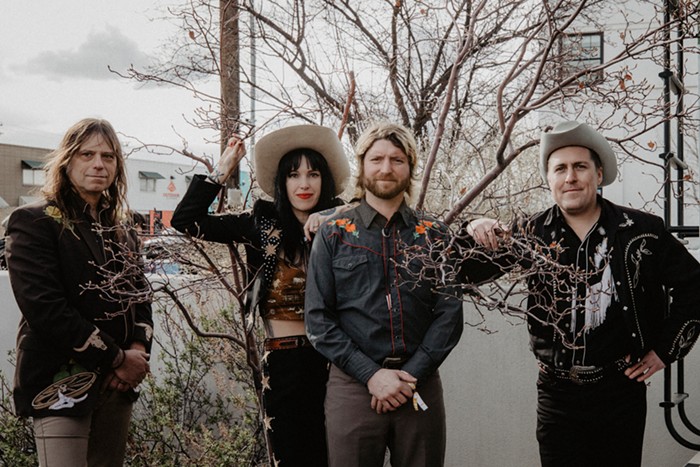WHEN SOMEONE DIES, it's customary to remember the happy days. Maybe get together with family and friends, have a few drinks, share some stories and tears, and figure out how to move on.
But what if you didn't actually know, or maybe had never even met the recently deceased? What if he or she were only an object of your admiration? Does that negate the heartbreak you feel about their passing? Is it silly to feel like your life suddenly has a great void in it because you know you'll never see this person in the flesh again?
If rock 'n' roll, or punk, or metal, or any combination of the three are of any importance to you—or if you simply subscribe to the philosophy of living free—then hearing the news of the death of Ian Fraser "Lemmy" Kilmister on December 28 should've had you sobbing like a baby. It had me.
Fortunately, I had the extreme pleasure of meeting Lemmy once. I had interviewed him prior to a Motörhead concert in Portland, and at the end of the conversation, he told me to find him after the show so he could buy me a beer. Weeks later, Motörhead played, and I was able to make my way backstage afterward and pluck a beer out of an ice bucket. I rounded a corner and introduced myself to Lemmy. "Well, I see you got your beer then," he said.
He remembered. Out of all the inane interviews he does all day long, how could he have remembered promising a beer to one? Considering his influence on the music world and the reverence he earned from his fans, he should've been an insane egomaniac. But he wasn't. He was humble. He was just living as he saw fit. And if you were there to be a part of it, he welcomed you. That was one of the things that made him so great: Lemmy was freedom incarnate. He was the living, breathing attitude of anyone that has ever balked at the status quo, or picked up an instrument and played it loud and fast.
Cory Boyd, guitar player for one of Portland's finest heavy metal bands, Spellcaster, has similar thoughts. "Lemmy was one of those legends that truly embodied the spirit of rock 'n' roll. Not only did he live the lifestyle to the fullest, he also never gave up, and stayed true to himself and the music."
Greg Meleney, riff scientist for local band Danava, also weighs in on Lemmy's legacy. "What really impressed me most about Lem was that when you take away all the infamous words and titles, which he rightly deserved more than anyone, you were looking at someone who did damn near everything he wanted to. That's not any easy feat.
"His passing has been an omen I have feared for years," continues Meleney, "but he was only killed by death. He's always here for us."
Before Lemmy died, it wasn't too hard to speculate what he was doing at any given moment. He could've been standing on a stage somewhere with his chin pointed at the ceiling, spitting "Ace of Spades" for the millionth time. He could've been sitting at the Rainbow, drinking a Jack and Coke and playing his favorite video gaming machine.
Now that Lemmy's shuffled off this mortal coil, we can all be certain he is with us anytime we see or hear him. When you crank the bass solo on "Stay Clean," Lemmy is actually playing it for you. When you watch any old interview, or see his picture in a magazine, there he is. That is actual Lemmy. Right there.



















